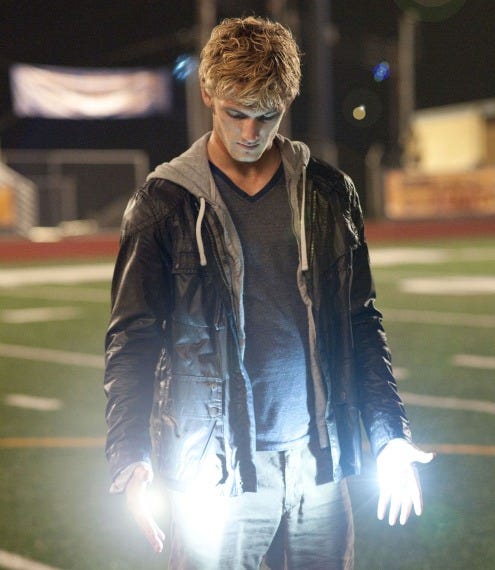The Power of Six

I didn't see "I Am Number Four." I was vaguely intrigued by Dianna Agron as the love interest, as she is quite possibly one of the prettiest women on Earth. However, the movie looked like every other young-adult sci-fi wannabe out there. And I'm really bored with Hollywood's attempts to make Alex Pettyfer happen.
I also didn't read the New York Times-bestselling novel on which "I Am Number Four" was based. That said, I'm a sucker for young-adult fiction. When the Yap was sent a review copy of "The Power of Six," the sequel to "I Am Number Four," I decided to take a crack at it.
The verdict? I wasn't exactly depressed, but I was far from impressed.
"The Power of Six" continues the story of John Smith, who is part of an alien race of nine young people sent to Earth when their home planet is overtaken by evil forces, living in hiding throughout the world with assigned adult guardians. When the first three were hunted and killed by the evil forces, John (Number Four) had to make some difficult decisions and eventually go on the run with the female Number Six and his best friend Sam, whose father was a human ally to the race and mysteriously disappeared.
The book has two parallel stories: John, Six and Sam's cross-country travels and combat training in the States, and Marina (aka Number Seven), undercover in a Spanish convent school and discovering her own unique abilities (called Legacies, which develop when the individual needs them most).
Though "The Power of Six" is a sequel, catching up on important plot points isn't an issue: Everything a new reader needs to know is scattered throughout the book. Action pops off nearly every page, and the relationships — Marina's struggle with her now-reluctant adult guardian; John's conflicting feelings for Six and for Sarah, the girl he left behind; John and Sam's mourning for their lost father figures — are never boring. Technically, Pittacus Lore (a pen name that figures into the book prominently) does everything right.
And yet, I was never completely drawn into this fictional world. Though I kept turning pages, I couldn't bring myself to care about the characters. Like standout series such as "The Hunger Games" and "Harry Potter," "The Power of Six" seeks to create a parallel universe with oddly named characteristics but grounded-in-reality issues. Unlike these other series, "The Power of Six" has drier prose and slower pacing, which contributes to a sense of distance from its characters and conflicts. Yes, it's cool that John can illuminate things with his hands and Marina can breathe underwater, but why should I root for them?
Clearly, the author wants "The Power of Six" to transition to the silver screen. The novel has a cinematic quality: long on action and dialogue, short on description. I don't know if "I Am Number Four" did well enough at the box office to warrant a sequel. I do know I wouldn't pay $12 to see it.



